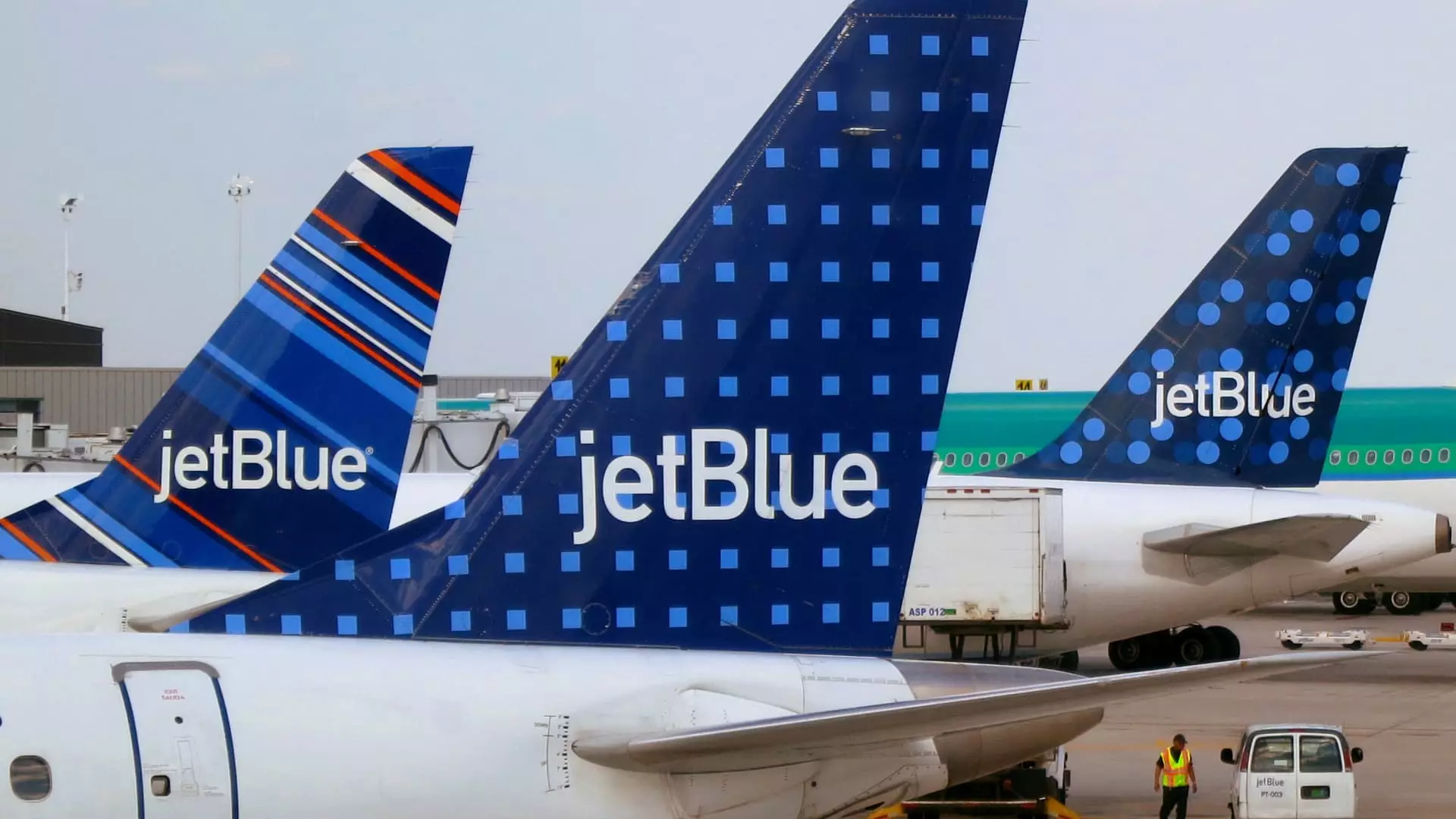JetBlue’s $2 Million Penalty: A Wake-Up Call for the Airline Industry

In a significant development within the aviation sector, JetBlue Airways has been hit with a $2 million fine by the Department of Transportation (DOT) for what the agency described as “chronically delayed flights.” This unprecedented penalty serves not just as a punishment for JetBlue, but as a clarion call for the entire airline industry to reevaluate their operational practices concerning flight schedules and reliability.
The term “chronically delayed” carries specific criteria set by the DOT. A flight is categorized as chronically delayed if it is operated at least ten times in a month and consistently arrives more than 30 minutes late in over fifty percent of those instances. From June 2022 through November 2023, JetBlue operated four specific routes that fell within this definition, with flight delays occurring on at least 145 occasions. These routes include high-traffic flights from John F. Kennedy International Airport to Raleigh-Durham, as well as from Fort Lauderdale to both Orlando and Windsor Locks in Connecticut.
Transportation Secretary Pete Buttigieg articulated that the fine underscores the government’s expectation for airlines to ensure their flight schedules map onto reality. The pressures that come with chronically delayed flights extend beyond the operational inefficiencies of airlines; they significantly inconvenience passengers and disrupt travel plans. The DOT’s action appears to signify a broader intent to hold airlines accountable for their scheduling decisions, ensuring that travelers are not left at the mercy of unrealistic timetables.
According to the DOT, JetBlue was the cause of over 70% of the disruptions affecting the aforementioned routes. The regulatory authority criticized the airline for failing to adjust its flight times in a manner that would avoid “illegal unrealistic scheduling.” This aspect of the case opens up a vital conversation about how airlines craft their schedules and the responsibilities they bear towards their customers. While JetBlue is facing repercussions for its operational decisions, the broader question is how many other airlines might also be operating under similar problematic practices.
What makes this fine particularly noteworthy is that it may set a precedent for future regulatory actions against other carriers guilty of similar chronic delays. The DOT has already proclaimed that investigations into other airlines concerning unrealistic flight schedules are active, which denotes a shift in regulatory scrutiny across the air travel landscape. This greater oversight could potentially lead to more airlines lining up to improve their operational efficiencies lest they find themselves in JetBlue’s position.
In response to the regulatory action, JetBlue has highlighted systemic issues within the airline industry, particularly concerns about air traffic control (ATC) staffing and outdated technology. The airline argues that while they acknowledge their part in the dilemma, the U.S. government also holds significant responsibility for the smooth operation of air travel. JetBlue, along with major carriers like Delta and United Airlines, has been vocally advocating for modernization of ATC systems and improved staffing, which they argue are crucial for mitigating delays affecting millions of travelers.
This perspective challenges the notion of a singular blame game, casting a wider net over various factors contributing to air travel inefficiencies. Moreover, given that JetBlue operates in some of the most congested airspace globally, their plight adds complexity to the discussion.
As JetBlue grapples with the implications of the fine, the airline’s performance metrics tell an encouraging story. Recent data from January to September 2024 reveals a modest improvement in on-time arrivals, with JetBlue achieving a 71.3% punctuality rate, up from 64.9%. While this uptick is promising, it emphasizes an ongoing need for JetBlue and the entire airline industry to continually adapt and enhance operational reliability.
The $2 million fine against JetBlue stands as a significant regulatory measure that not only addresses specific instances of flight delays but also signifies a collective moving forward in improving the air travel experience for millions. The focus on realistic scheduling and systemic improvements in air traffic control sets a critical benchmark for the industry’s future trajectory.





